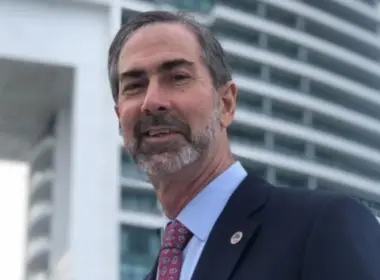The links between Miami and Israel’s high tech
By Doreen Hemlock
In 20 years building the tech business between Israel and Miami, Meital Stavinsky has never seen bonds so strong, nor felt so optimistic. Israel is now blooming as “Start-Up Nation,” known for innovation and home to the world’s largest concentration of tech companies outside Silicon Valley. And Miami is emerging as a tech hub, with an influx of ventures and capital since COVID-19 began, some from Israel.
“All the stars aligned,” says Stavinsky, who leads the Israel practice at Holland & Knight law firm in Miami, helping Israeli companies expand in the U.S. and advising on U.S.-Israel business and regulations. “When I came here 20 years ago, I was looking for that tech convergence. Now, it’s here.”
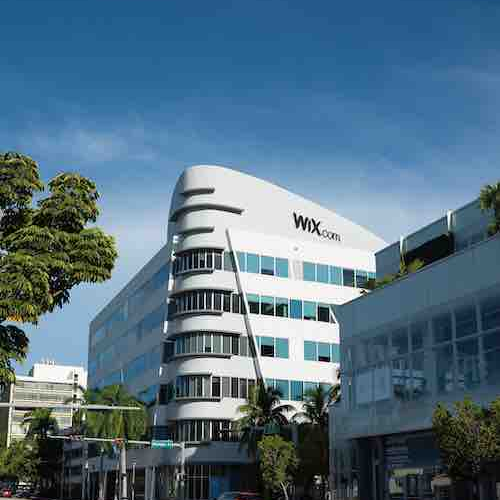
Stavinsky sees evidence of stronger ties in the type of offices that Israeli tech companies are opening in Miami these days. For decades, Miami was a second stop for Israeli business in the U.S. after New York or California. Some companies set up regional or Latin American hubs in South Florida, but few had their U.S. headquarters in Miami, often preferring to keep those key offices in the northeast or on the West Coast.
“It used to be that the Israeli companies in Miami would be mostly sales offices, with minimal senior management from Israel,” says Stavinsky. “Now, more and more tech companies are establishing their U.S. headquarters in Miami to expand across the Americas, with senior management relocating to Florida.”
That’s the case with Yair Benyamini, co-founder and CEO of Lendai, a financial-tech company based in Tel Aviv. Lendai lends money to international buyers of U.S. real estate. It has raised more than $35 million to develop its business. The company helps qualified buyers with little or no U.S. credit history, who often can’t get loans from U.S. banks. It uses artificial intelligence (AI) for research to assess risk.
Benyamini started Lendai in 2019 and moved to Miami in September 2021. It helped that his wife’s parents live in Aventura, just north of Miami, and he’d visited the area many times. But the real lure was business: Miami is the top market for foreign investment in U.S. real estate. It’s a vibrant tech and finance hub, with lots of start-ups and strong support for technological innovation. Travel is simple: Israel’s El Al and American Airlines both offer direct Miami-Tel Aviv flights. And the East Coast time zone is the closest in the U.S. to Israel’s.
Today, Lendai employs 40 people worldwide, with 10 in Miami – and growing, says Benyamini. “Ten years ago, you had to go to New York or Silicon Valley to find good tech talent,” says Benyamini. “Now, the talent comes to you if you’re in Florida. It’s a great place to open an office.”

Beyond Lendai, the CEO enjoys South Florida’s lifestyle: warm weather, beaches, an ample Jewish community, fellow Israeli entrepreneurs, and even family nearby – all like Israel.
The Knight Foundation plants the seeds
How did the tech ties become this strong? Florida and Israel have a long history in trade and business. Enterprise Florida, the state’s economic development group, has had an office in Tel Aviv since 1998, and Florida governors for decades have taken delegations to Israel to boost links in commerce and beyond.
But the tech bonds also build on efforts by the John S. and James L. Knight Foundation in the 2010s to develop Miami’s tech ecosystem, seeding accelerators, conferences, and other programs.
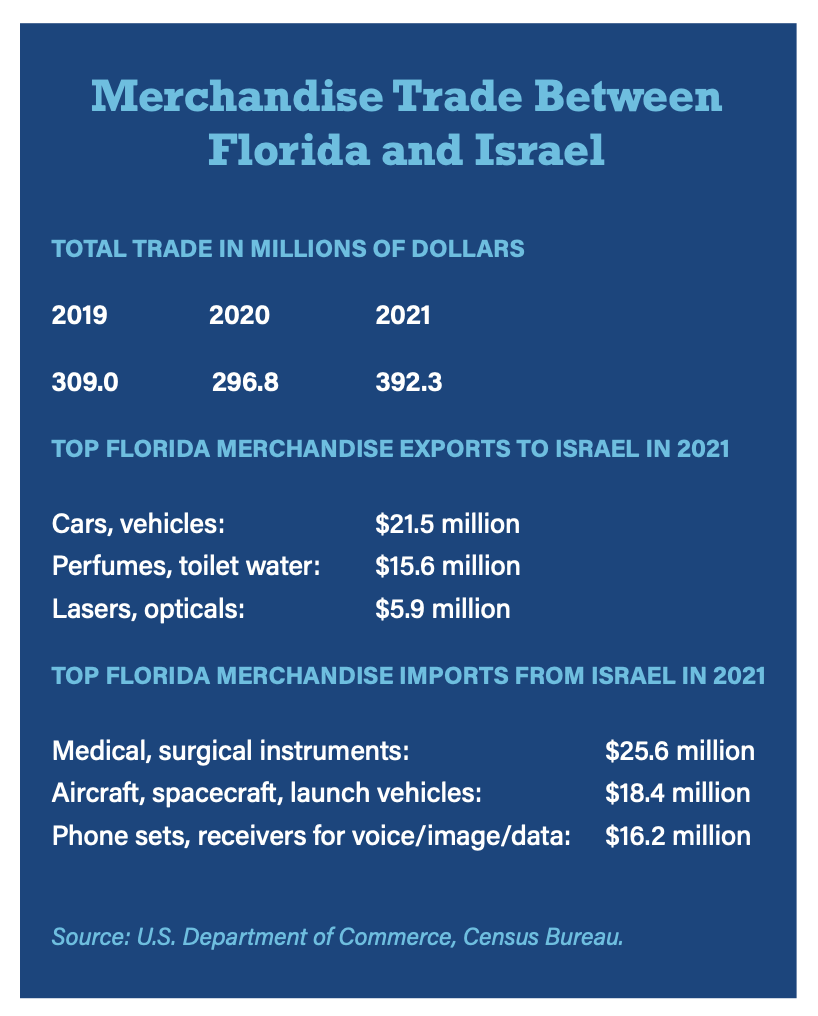
Brian Siegal, who leads the Miami-Dade and Broward office of the America Jewish Committee (AJC), reached out. He was friendly with the Foundation’s then-Miami director Matt Haggman and knew Haggman had read the 2009 book, “Start-up Nation,” about Israel’s tech success. The AJC routinely takes groups to Israel.
“Wouldn’t it be interesting to take a delegation of Miami tech entrepreneurs to Israel and see what the best practices are and build bridges?” Siegal suggested. Haggman agreed.
In March 2015, Siegal led some dozen Miami tech leaders from the Knight Foundation, Endeavor, Venture Hive, and other key groups to meet with government, business, and university leaders in the AJC’s first Project Interchange mission. “The goal was to bring back ideas to help Miami build its ecosystem and establish some ties with Israel,” he says. Initiatives quickly sprouted. The IDEA Center at Miami-Dade College (MDC), for example, signed a memorandum of understanding with the Tel Aviv University Entrepreneurship Center. MDC then launched a cybersecurity training program and held a “Startup Nation” conference with Israeli tech founders.
AJC organized a second Miami tech delegation to Israel in 2016, a third in 2017, and a fourth in 2019. It plans a fifth this year, working with the Knight Foundation’s current Miami director, Raul Moas. In addition, a conference is set for November at Florida International University (FIU) where Israeli and Miami tech leaders will share experiences.
Siegal says the visits to Israel surprised some first-timers. “Many people think of Israel as a war-torn place, because a lot of what you hear in the media is about conflict. But when they get there and see a society tackling global issues, it’s mind-blowing for them,” says Siegal. “They see this ancient culture mixed with all this innovation. And what’s fun for me is to see the consternation and surprise in their eyes.”
Other Miami groups are building bridges with trips too. Miami-Dade Mayor Daniella Levine-Cava, the county’s first Jewish mayor, co-led a delegation of 50-plus people to Israel this spring in a visit organized by the Greater Miami Chamber of Commerce. Delegates visited tech companies active in varied sectors, such as AI, transport, healthcare, water use, and climate resilience.
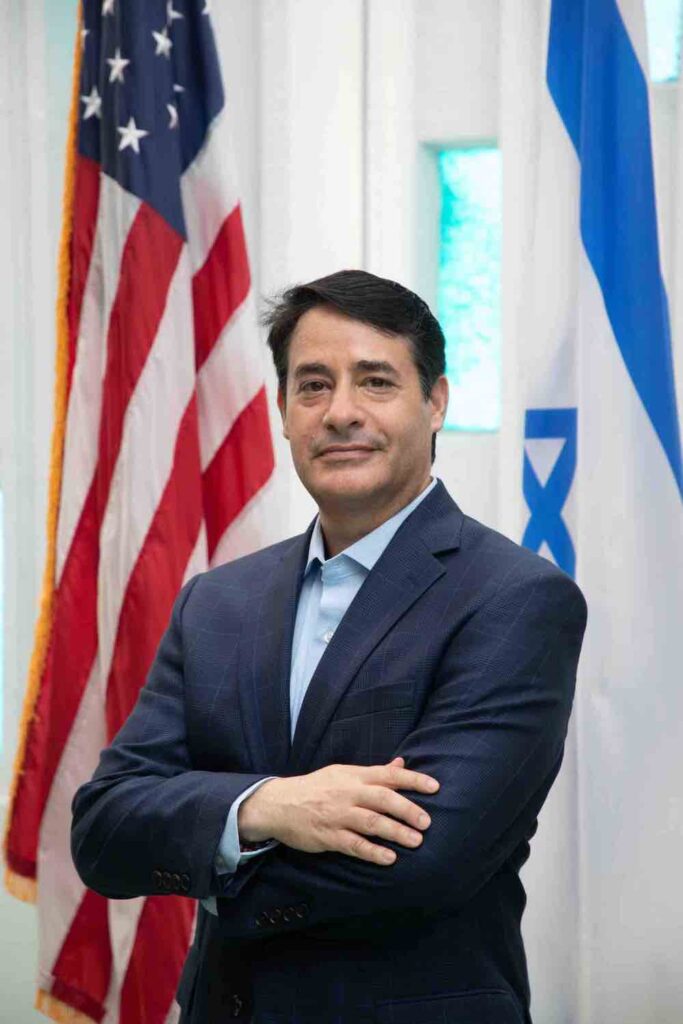
“Our trip to Israel was centered around engagement with technology firms in the country that are interested in expanding in the United States. And I made sure that they knew, if they want to operate in the U.S., it should be in Miami-Dade,” says Levine-Cava, noting that the county is tops for growth in tech jobs nationwide. “This is the best place for them to build, invest, and hire.”
Among results from that visit: PortMiami renewed a sister seaport agreement with the Port of Haifa to boost cargo and cruise activity between the two ports; since it was first signed in 2017, PortMiami’s trade with Israel has grown 136 percent. Plus, FIU partnered with the Israel Institute of Technology, or Technion, which ranks among the world’s top 10 universities for science and tech research and is a cornerstone of “Start-Up Nation.” Technion started R&D into aeronautics in 1948 to help Israel’s nascent air force.
eMerge Americas, the group started by Miami entrepreneur Manny Medina to make South Florida a tech hub for the Americas, also plays a pivotal role. It hosted a 10-company Israeli delegation at its 2015 conference in Miami Beach and has consistently forged tech ties between the two areas.
Why Israel shines as “Start-Up Nation”
Israel is a small country – about the size of New Jersey, or roughly the area of Miami-Dade, Broward, Palm Beach, and Monroe counties combined. It has only 9.5 million residents, less than half the population of Florida. Yet today, it produces more startups per capita than any nation in the world.
Part of the secret, Israelis say, is close collaboration between government, business, and academia. Israel’s government funds programs to nurture research and start-ups. Also vital: Israel’s resilience and ability to adapt, a trait often linked to the military service that most Israelis do, both men and women.
“At 18, we learn very quickly how to protect the country and think outside the box,” says Dan Vigdor, co-founder of Israel’s Thrive DX, which trains people in cybersecurity and has its U.S. hub in Miami. “That practical, skills-based approach from the army, we bring to tech.”
Resilience also includes respect for missteps and their teachings. “It’s okay to fail, to talk about your failures in Israel,” says Lendai’s Benyamini. “There are actually evenings called F-up Nights at bars, where you talk about the lesson you learned. Because when you succeed, you never really know why. It could be luck. But when you fail, you know exactly what happened. It’s much easier to learn from failures.”
Still, cultural differences sometimes make Miami-Israel business tricky in tech and other fields.
Israel’s consul general in Miami, Maor Elbaz-Starinsky, reminds fellow Israelis that it’s not enough to speak English to succeed in the United States. “Learn American,” counsels Israel’s representative to Florida, Kansas, Missouri, and Puerto Rico. That means, for example, learn how Americans run a business meeting (more formally compared to Israel), how they dress (less casually), and how they speak (usually less directly).
“If you hear ‘Let’s have dinner one day,’ in Israel, it means, ‘Let’s have a Shabbos dinner [Friday night] with the whole family,’” says Elbaz-Starinsky, “But in America, it doesn’t mean that.”
Israelis are known for their assertiveness or “chutzpah,” a Yiddish word appropriated into Hebrew. They sometimes ask direct questions that can rub Americans the wrong way and may seem too personal. Some link that sense of chutzpah to the Jewish tradition of inquiry into religious teachings.
“In Israel, a friend comes to your apartment, and the first question is: ‘How much do you pay for rent?’ But no one would ask that in the U.S.,” says Benyamini. “In Israel, everything is out on the table. There’s no privacy. It’s like one big family. Of course, it’s not like that in the U.S., Canada, or Europe.”
Coaching Israelis in U.S. business culture was the initial thrust of the Florida-Israel Business Accelerator (FIBA), an initiative begun in 2016 by Tampa’s Jewish Federation and Jewish Community Centers. The program started out bringing cohorts from young Israeli companies to Florida to coach them, match them with customers and investors, and encourage them to set up in the Sunshine State.
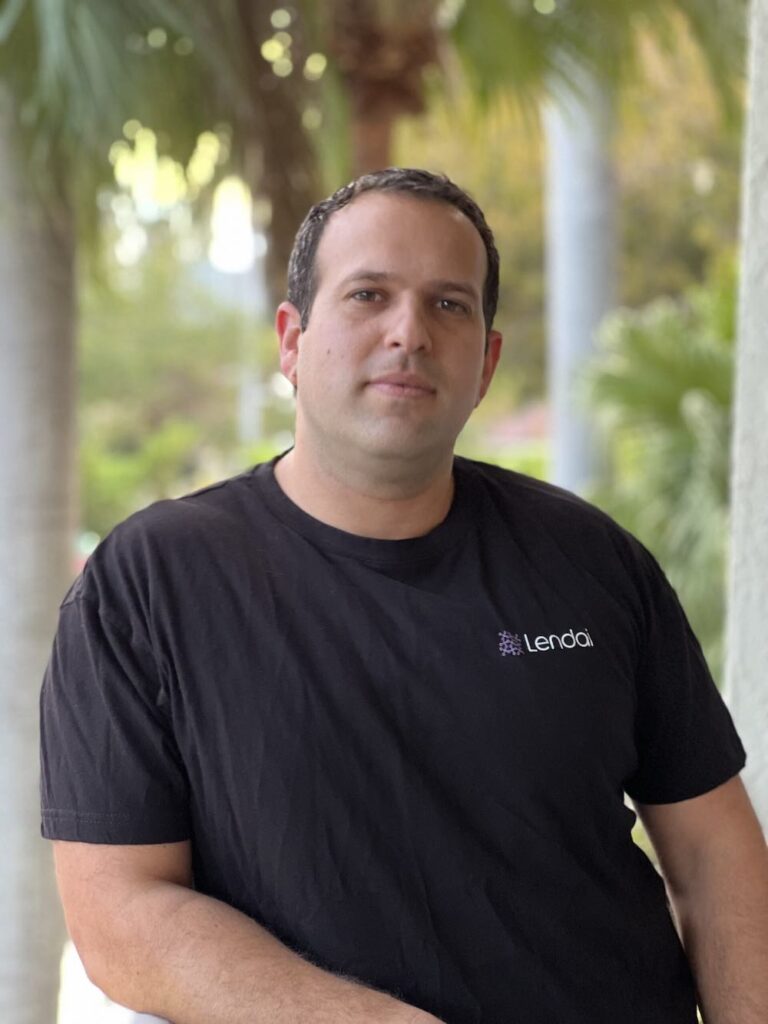
Rakefet Bachur-Phillips co-directs the FIBA program and learned many of those cultural lessons the hard way. An Israeli marketer, she came to Tampa to work in the U.S. office of an Israeli medical start-up. She found that in healthcare, the U.S. system is totally different than Israel’s – with organizations typically larger, more hierarchical, more formal, and slower to make decisions. That means Israelis need coaching on how to find the right decision-maker, how to deliver a polished presentation, and how to spell out next-steps in the sales process before they leave a meeting, says Bachur-Phillips.
She chuckles recalling a misstep by one visiting Israeli, used to his country’s more informal culture. In Israel, many people smoke, so the visitor, on greeting a top U.S. exec for the first time, amicably asked, “Do you want to go out for a smoke before the meeting?” He learned not to do that, she says.
So far, FIBA has assisted more than 70 Israeli companies that have raised $885 million-plus in funding, says Bachur-Phillips. Fifteen of those established a Florida presence, creating at least 50 tech jobs in the state. FIBA is now focusing on bringing Israeli companies to Florida to solve specific problems, including labor shortages in restaurants. It recently signed an agreement with Nova Southeastern University’s new Alan B. Levan Center of Innovation to help Israeli entrepreneurs in South Florida.
A sampler of Israeli companies in Greater Miami
Aroma Espresso Bar, café chain. Founded in 1994 in Jerusalem. More than 200 locations worldwide, many in single-locale franchises. Locations in Miami Beach, Miami Gardens, and Downtown Miami.
El Al Airlines, Israel’s national airline. Founded in 1948. El Al has operated direct Miami-Tel Aviv flights since 2017. It plans to move its U.S. headquarters from New York to South Florida, partly to lower costs.
HaSalon, fun, upscale restaurant, led by Chef Eyal Shani. Opened in 2021 in Miami Beach at former China Grill site. Minimum food order of $120 per person at its late-night seating, which shifts to dancing.
Insightec, non-invasive surgery practice that uses focused ultrasound to treat tremors and other disorders. Based in Haifa, with U.S. headquarters in Downtown Miami. CEO is Miami entrepreneur Dr. Maurice R. Ferre, son of Miami’s former mayor of the same name. Dr. Ferre also developed Mako Surgical, which sold for $1.65 billion in 2013. Insightec employs 400 people worldwide in Israel, Miami, Dallas, Shanghai, and Tokyo.
Israel Discount Bank, commercial bank. Founded in 1935. Has a U.S. unit now called IDB Bank of New York, which started in 1949. Israel Discount has an office on Brickell and IDB Bank a branch in Aventura. The bank is known for a focus on digital banking and fin-techs.
Momentis Surgical, robotic surgery, formerly Memic Innovative Surgery. Based in Tel Aviv, with a Fort Lauderdale office that handles global customer service and more. Founded in 2013. Obtained a $96 million Series D funding round in 2021. Chairman is Maurice R. Ferre, CEO of Insightec.
Wix, website builder. Based in Tel Aviv, with a Miami Beach office since 2015. Bought South Florida startup SpeedETab in 2021. Has 300-plus employees in Miami Beach, including multilingual customer service staff. Aims for 450 people in Miami Beach by 2025. Global revenues topped $1.1 billion in 2021.
Zim Integrated Shipping Services, international cargo shipping. Based in Haifa. Started in 1945 and trades on the New York Stock Exchange since 2021. Office at PortMiami.
Source: Company reports; GLOBAL MIAMI research.
A lesson in globalization
Israeli founders in Miami say they’ve gained from South Florida’s broad, international focus too. “Miami believes in globalization. It’s a gateway not only for the U.S., but for Latin America, Israel, and other areas,” says Nadav Solomon, co-founder of hospitality software maker Tabit. “In Israel, we focus mostly on the U.S. market, but we can learn from Miami how to be open to many markets at once.”
Solomon opened Tabit’s U.S. headquarters in North Miami Beach in 2020, with support from Enterprise Florida and Miami-Dade County’s economic development group The Beacon Council. The company now serves dozens of South Florida locales, from Sugar Factory restaurants to The Setai hotel.
For Stavinsky, the recent influx of Israeli companies like Tabit builds on “layer over layer of work” by governments, businesses, nonprofits, and universities over decades. She sees how much those efforts have paid off in the way everyday people react when she mentions what she does. Years back, some South Floridians were surprised that Israel had companies here. Now, many instead respond: “Israeli? They must have amazing tech.”



